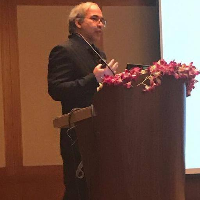The COVID-19 pandemic may force the world to reflect on the pre pandemic style of life
The COVID-19 pandemic has caused a lot of changes on an individual and societal level. The current study was designed to investigate the impact of the isolation/ social distancing period on people’s sense of Being, Belonging and Becoming in the early stages of the COVID-19 measures.
A cross sectional survey study design was employed using a researcher-developed questionnaire with items developed based on the Model of Occupational Wholeness to investigate the changes that may have happened to what people have been doing during the COVID-19 measures compared to the time before. A sample of 1206, using snowball sampling, responded to the online questionnaire.
Findings indicated that participants at the early stage of the COVID-19 pandemic had changed the pattern of their Doings. The change of pattern, which was considered positive, was in relation to people valuing their health, having more time to take care of themselves, and doing activities which they had never had enough time to do before.
While these findings are not generalizable, they provide some insights into how the post-pandemic lifestyle of many people does not permit doing a lot of activities that could help with their health and well-being. While enforced isolation may have negative consequences, it is also clear that the pre COVID-19 pandemic lifestyle did not fully support healthy living. Reflecting on the COVID-19 lockdown experience provides an opportunity to review what are the essential personal and societal elements for living a healthy life.
-
The Relationship Between Manual Ability and Self-care in Children Aged 1-8 Years With Spastic Cerebral Palsy: A Cross-sectional Study
Mohammad Amiri, Hamid Dalvand*, , Amir Almasi
Iranian Rehabilitation Journal, Dec 2023 -
The Effects of Islamic Culture on the Occupational Performance of Clients Receiving Occupational Therapy in Islamic Countries: A Review Study With Content Analysis Approach
Hassan Vahidi, Nazila Akbarfahimi*, Azad Rahmani,
Archives of Rehabilitation,



